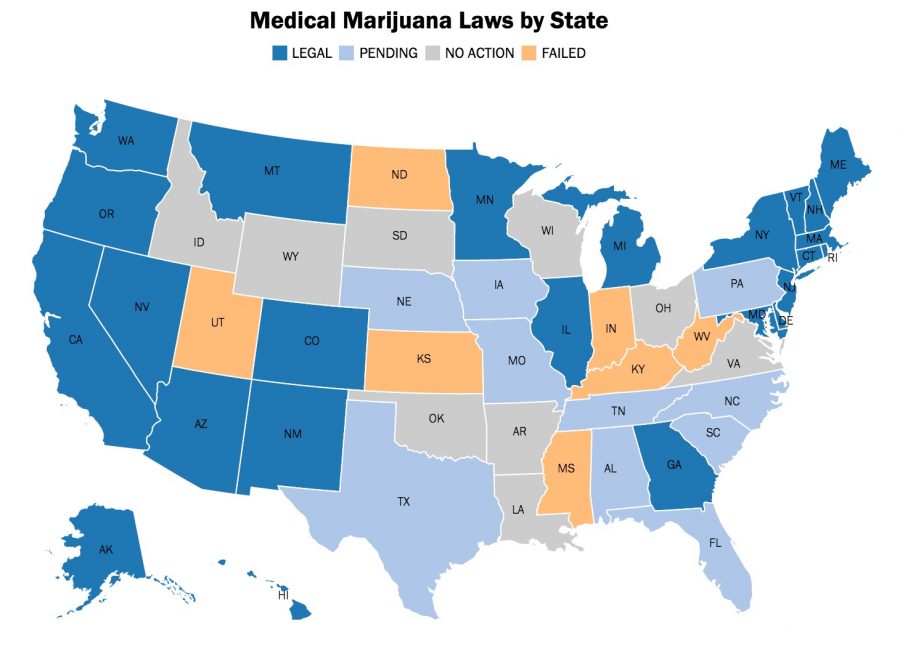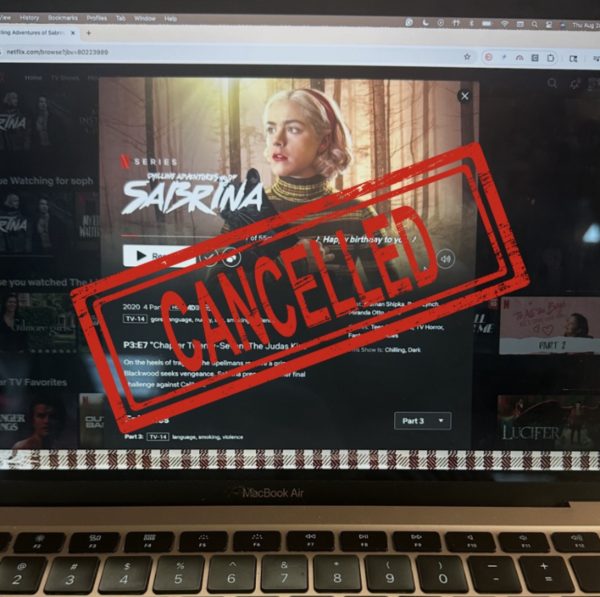To Weed or Not to Weed
January 31, 2017
During election season, you may have heard speculation about “Amendment 2.” The legislation has been on the table for a while, but Florida finally legalized medical marijuana with a passing percentage of 71.3. But, Florida is still a little behind. States like Massachusetts passed recreational use of the drug this past November. Even though some states are becoming more progressive, paving the way for the rest of the 43 states, the federal government isn’t having it.
For example, in Massachusetts, although dispensaries were supposed to open in late January, legislation is pushing those opening dates into mid 2017. This further proves the tension between the federal government and state governments in terms of legalizing marijuana. Colorado, as one of the firsts to legalize it, has already faced Supreme Court cases.
The most notable one occurred when an employee in Colorado tested positive for the chemical THC, found in marijuana, and was fired because of the company’s rules on the matter. The man was a user of medical marijuana because of his condition as a quadriplegic, and thus wasn’t abusing any substance on purpose or recreationally. Because the case was taken to the Supreme Court, the laws of Colorado didn’t apply. Federal law overrules that of the state, thus creating issues for those states now allowing medically or recreational marijuana.
Those against the passing of pot laws argue that it: damages your brain, lungs, and heart, creates dependency, leads to depression or schizophrenia, acts as a gateway drug, or puts you at risk on the road. All reasonable and fair judgments, but one rarely hears about fatalities from using marijuana whereas everyday there’s a fatal car crash to be reported due to alcohol, which is legal and accepted internationally. Though there are more known misfortunes associated with alcohol, no one ever questions its legality.
“Legalizing marijuana could stimulate the economy and improve our infrastructure over time. Imagine the jobs it could create at dispensaries and the taxes placed on it would definitely improve our community,” said senior Kyle Hobkirk. Marijuana has the capability of drastically changing the economy, and even high schoolers realize it. Senior Michael McMillan said, “It should be legalized for economic purposes. The surplus of cash that would flow in from the legalization of ‘kush’ could pay for schools, roads, and other infrastructure-related things.” In the end, legalizing marijuana not only positively influences the lives of those in need of the drug for medical reasons, but also improves the lives of anyone in said community.








